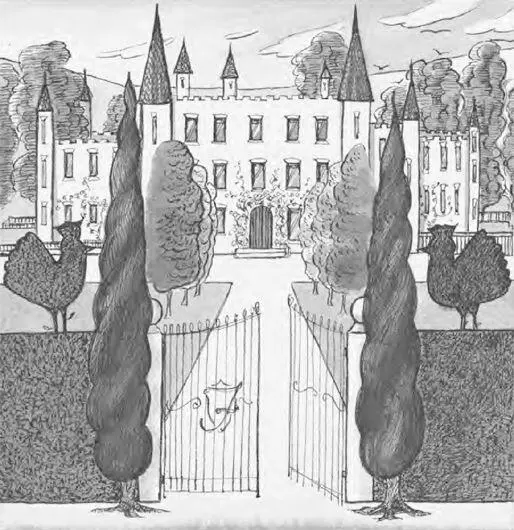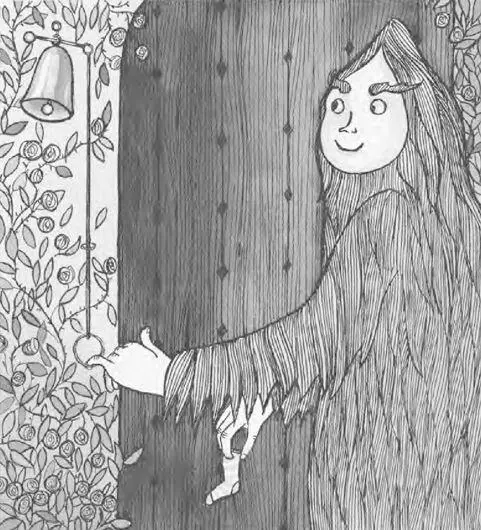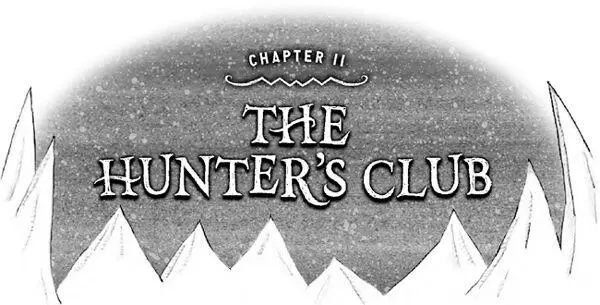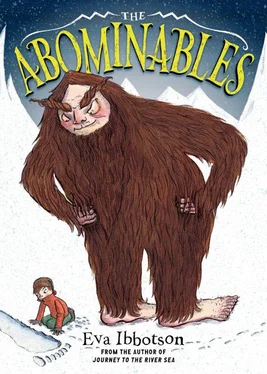
Lady Agatha had not been exaggerating. It really was one of the loveliest houses he had ever seen. Bathed in sunlight, its mellow brick glowed softly. There were wide inviting terraces that fell away to the rolling meadows of the deer park with its ancient elms. Yellow water lilies studded the lake, and on the wrought-iron gates the Farlingham crest shone proudly.
“All the same, I’ll just check at the village shop,” said Con, “make sure the Farlinghams are still there.”
So he went into the village shop, which was the old-fashioned kind with sweets in glass jars, and licorice and bootlaces and apples all jumbled up on the counter. Con bought a small bag of Black Bullets and then, trying to keep his voice casual, asked who the big house belonged to.
“Oh, that’s the Farlinghams’ place,” said the woman behind the till. “Been in the family since way back.”
“Are they nice people?” said Con.
“None nicer,” said the shop lady. “I reckon there’s no one would have a bad word to say for the Farlinghams. Which is more than you can say for some of these old families.”
“Well, I guess we’re home and dry then,” said Perry when Con came back. “If they don’t clap me in jail, that is, for turning in an empty lorry. It’s the Perrington Porker for me and back to Bukhim for the two of you, I guess.”
Con nodded. “I’d like just to see them safely into Farley Towers, though.”
“Of course,” said Perry. “Tell you what, I’ll book a room for tonight in the pub here. The Farlinghams will probably want you and Ellen to stay with them, but I’d rather be independent. Then tomorrow I can get up to town and see the Cold Carcasses people and book your flight home. OK?”
“OK,” said Con, and he went to tell the yetis that they had arrived.
When he opened the door of the lorry, he had quite a surprise. Ellen, who had been traveling in the back with them, had worked really hard. Their fur shone, Queen Victoria glistened with polish between the shining braids on Lucy’s stomach, and the bedsock was arranged across Ambrose’s burnished chest like the Order of the Garter.
“Aren’t we smart!” said Ambrose the Abominable. “They’ll like us like this, won’t they, at Farley Towers?”
“They’d better,” said Con in a gruff voice. He’d just begun to understand what it would be like to go back to Bukhim and not see the yetis anymore.
And seeing the yetis look so smart made the children suddenly realize how crumpled and disheveled they themselves were looking after the long journey. You can brush fur, but you can’t do much about missing buttons and torn sweaters and socks with holes in them.
“Look, now that we know the Farlinghams are still there, I think you should go ahead,” said Con to the yetis. “After all, you’re sort of family from having been brought up by Lady Agatha, and you’ve got the bedsock to show who you are. We’ll find a field to put Hubert in and then we’ll go with Perry to his pub and clean ourselves up and then we’ll join you. All right?”
The yetis nodded. “But you’ll come soon , won’t you?” said Ambrose, managing to keep his voice wobble free, but only just.
“Very soon,” promised Con.
But when the yetis set off up the avenue of linden trees that led, wide and straight and welcoming, from the main gateway of Farley Towers to the house, they couldn’t feel shy and nervous anymore. It was so lovely to walk upright and unashamed without being afraid to be seen. Not that there was anyone about in the deserted park, but if there had been, it wouldn’t have mattered because they were safe now; they belonged .
“’Ice!” said Clarence in a pleased voice, looking about him.
“Yes, isn’t it nice?” said Lucy. “It’s just like walking into the Farley Towers game. Look, there’s the lake where we’re going to row and have picnics with lemonade.”
“And there’s the summer house where Lady Agatha used to read Beautiful Poetry,” said Grandma.
“If only she could be with us now. And Father, too!” sighed Uncle Otto.
They walked on steadily up the long, curiously empty drive between the linden trees, which made an arch above their heads, and came out on the wide sweep of gravel in front of the great iron-studded door.
“They will be our friends and tell us stories, won’t they?” wondered Ambrose, suddenly feeling rather wobbly and scared.
“Of course they will,” said Grandma. “Now come on, ring the bell.”
And bravely, Ambrose the Abominable took off his bedsock and, holding it carefully in his right hand, he pulled the big brass handle of the bell. They could hear it peal in the back of the huge house — a deep, long peal. There were footsteps, a creak as of a metal bar being pulled back — and then the great front door swung open and the yetis went inside.
The long journey was over. They were home.

Chapter 11
The Hunter’s Club

 HILE THE YETIS WERE WALKING UP THElong drive to Farley Towers, a meeting was being held inside the house, in the Gold Drawing Room, which faced the rose gardens and the terrace at the back.
HILE THE YETIS WERE WALKING UP THElong drive to Farley Towers, a meeting was being held inside the house, in the Gold Drawing Room, which faced the rose gardens and the terrace at the back.
The Gold Drawing Room looked much as it had looked in Lady Agatha’s day. The beautiful Chinese vases were still there, and the embroidered screen and the harpsichord. The sacred relic was there, too: the other bedsock, the one that the Earl had brought back from Nanvi Dar and slept with under his pillow until he died.
But there were other things now, hung on the walls or resting on the furniture: things that would never have been allowed in the house when Lady Agatha was a girl. Heads they were, mostly. The stuffed heads of friendly hippopotamuses and gentle giraffes and thoughtful buffaloes, looking down on the room with sad and glassy eyes. There were skins, too — the skins of slaughtered tigers and zebras and leopards lying on top of the lovely flower-patterned carpet. Sawn-off tusks and antlers were piled above the mantelpiece, and in a glass case the bodies of poor dead fishes hung stiffly.
The meeting was a big one. There were about thirty people sitting round a huge satinwood table, all of them men. And not one of them was a Farlingham.
The lady in the shop had not been lying when she said that Farley Towers still belonged to the Farlinghams. It did. But like many old families, the Farlinghams had become poor. They couldn’t afford any longer to keep the acres of roof mended, or pay gardeners to tend the grounds or servants to care for the ninety-seven rooms. So they had decided to rent the house to a school or a club or a hospital that would be able to look after it. And their agent had rented it to a club. A club that wanted to move from its headquarters in London to a place in the country because it needed more room.
The Hunter’s Club, it was called …

The members of the Hunter’s Club came from all over the world. There were oil sheiks from Iran, film stars from Hollywood, German industrialists, Spanish noblemen — anyone who thought that killing defenseless animals turned you into a “real” man. It cost twenty thousand pounds just to join the club, and the funds were used to buy airplanes and motorboats and snowmobiles so that members could go and kill even the rarest animals in the most distant places without anyone being able to stop them.
Читать дальше




 HILE THE YETIS WERE WALKING UP THElong drive to Farley Towers, a meeting was being held inside the house, in the Gold Drawing Room, which faced the rose gardens and the terrace at the back.
HILE THE YETIS WERE WALKING UP THElong drive to Farley Towers, a meeting was being held inside the house, in the Gold Drawing Room, which faced the rose gardens and the terrace at the back.











